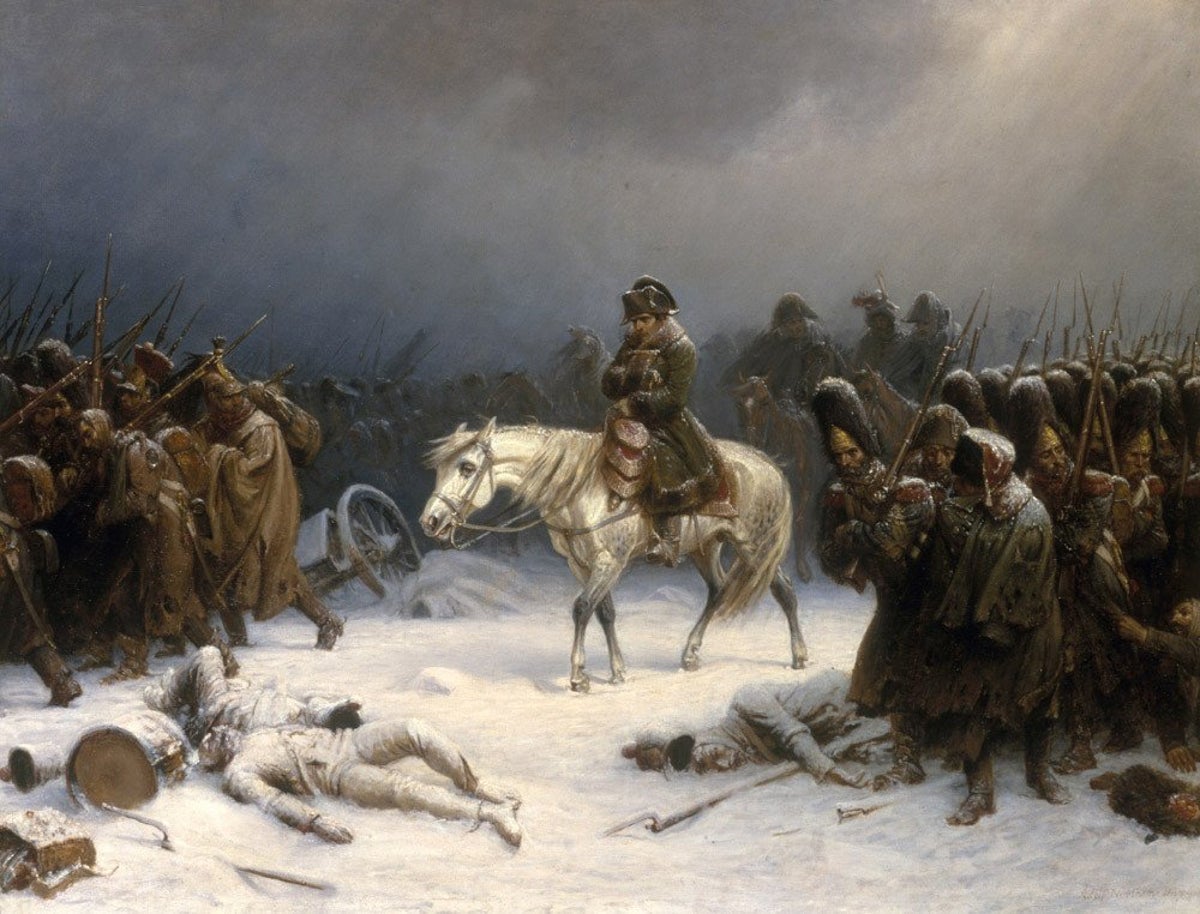
"In 1812 Napoleon Bonaparte invaded Russia with one of the largest armies in historythe Grande Armee of about half a million men. But when they were forced to retreat, harsh winter conditions, starvation and disease decimated the invaders. Historians estimate that around 300,000 of these men died. Historical accounts, early DNA studies and remains of body lice found on the soldiers support the idea that typhus and trench fever contributed to the fall of the army."
"Ancient DNA holds a clue. Genetic material recovered from historical fossils, skeletons and mummies has unearthed mysteries of our ancestors trapped in time. In a new study in the journal Current Biology, Barbieri and his colleagues suggest that two previously unsuspected pathogens struck Napoleon's massive army: Salmonella enterica, a bacterium that causes paratyphoid fever, and Borrelia recurrentis, a bacterium that is spread by body lice and causes relapsing fever."
In 1812 Napoleon Bonaparte invaded Russia with the Grande Armée of roughly half a million men and suffered catastrophic losses during the retreat. Harsh winter, starvation and disease killed an estimated 300,000 soldiers. Historical evidence had linked typhus and trench fever to the army's collapse. Ancient DNA analysis of teeth from 13 Napoleonic soldiers identified Salmonella enterica, which causes paratyphoid fever, and Borrelia recurrentis, which causes relapsing fever and is spread by body lice. Both pathogens would have been deadly among malnourished, cold soldiers and may have contributed significantly to the army's attrition.
#1812-russian-campaign #ancient-dna #salmonella-enterica-paratyphoid #borrelia-recurrentis-relapsing-fever
Read at www.scientificamerican.com
Unable to calculate read time
Collection
[
|
...
]